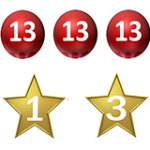There's no such thing as luck, but chance can be a chance - it's up to you to master it!
I've long defended the idea that chance remains, by its very nature, unfathomable and impossible to anticipate. Never, it seemed to me, could it be tamed. And yet, the boundary between pure randomness and human intervention turns out to be blurrier than we might imagine, particularly when it comes to games of chance. Just think of the famous mathematician who, thanks to a rigorous method combining probabilistic calculations and flawless organization, managed to win several lottery games. How did he do it? By estimating the almost astronomical number of tickets needed to guarantee his victory, and, above all, by mobilizing a team of associates to fill this mountain of ballots. The challenge was not so much to find the winning combination, but to methodically cover all the possibilities to force luck to smile on him.
Naturally, the Lottery administration, alerted by such a strategy, protested against the move. In their view, large-scale gambling, however legal the purchase of tickets, tainted the spirit of the game, which is supposed to be based on fun and spontaneity rather than algorithmic calculations and the cold pragmatism of probabilities. Let's not forget: their main objection was based on the very essence of gambling, which they felt should remain entertainment and not an exact science. And yet, we have to admit that chance, so vaunted for its unpredictability, had indeed been challenged, methodically orchestrated and even bent to the will of those who refused to blindly rely on luck.


